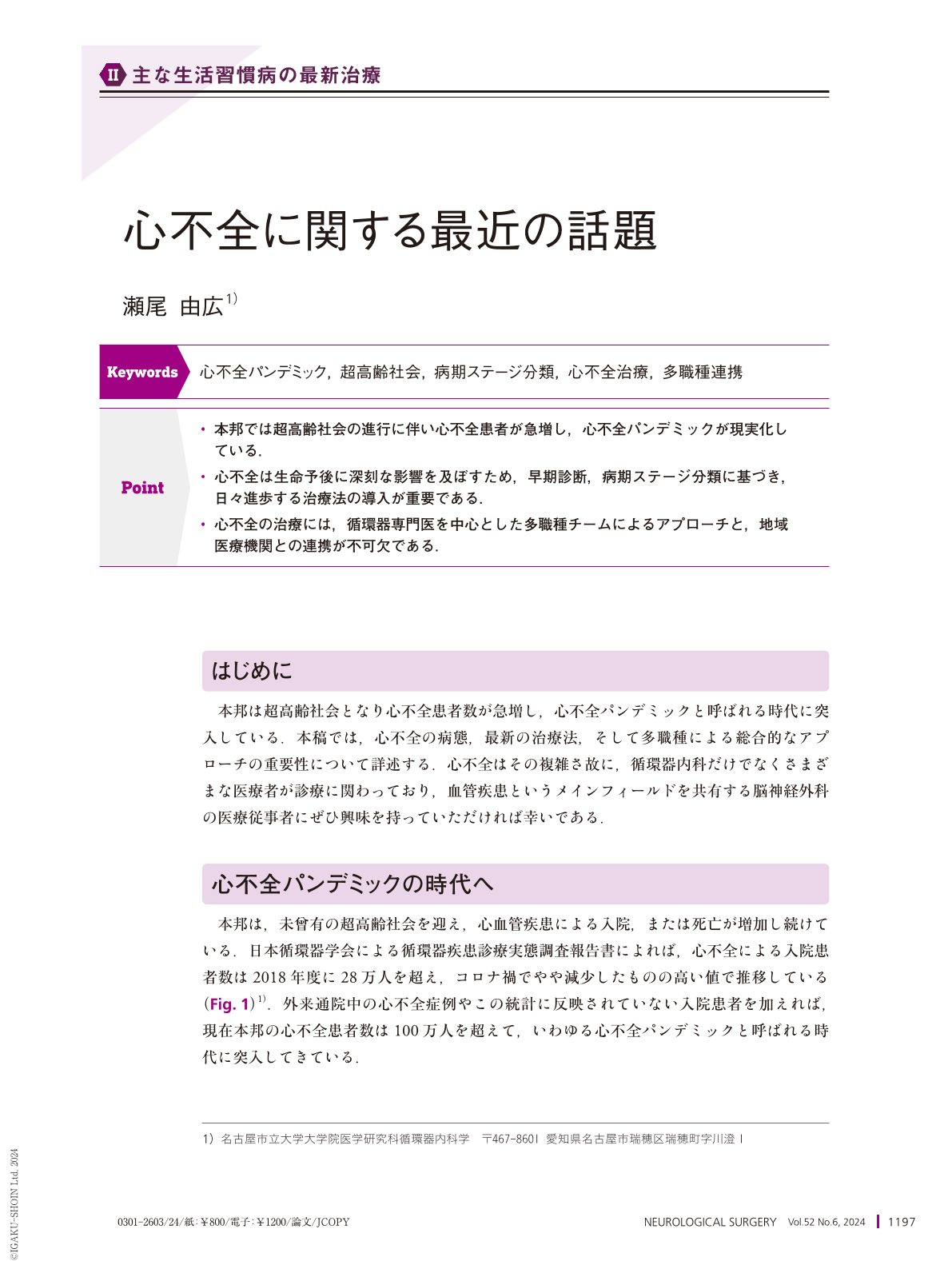Japanese
English
- 有料閲覧
- Abstract 文献概要
- 1ページ目 Look Inside
- 参考文献 Reference
Point
・本邦では超高齢社会の進行に伴い心不全患者が急増し,心不全パンデミックが現実化している.
・心不全は生命予後に深刻な影響を及ぼすため,早期診断,病期ステージ分類に基づき,日々進歩する治療法の導入が重要である.
・心不全の治療には,循環器専門医を中心とした多職種チームによるアプローチと,地域医療機関との連携が不可欠である.
Japan is currently experiencing a significant increase in the number of patients with heart failure driven by its rapidly aging population, a phenomenon termed the heart failure pandemic. This trend is particularly alarming because heart failure severely affects life expectancy, making it a critical public health issue. The rising number of heart failure cases has highlighted the importance of early diagnosis and intervention, with heart failure now classified into distinct stages to better tailor treatment strategies. Recent advancements in treatment, including new pharmacological options such as SGLT2 inhibitors and non-pharmacological approaches such as transcatheter aortic valve implantation and catheter ablation, have significantly improved patient outcomes. These treatments are particularly effective in managing the complexities of heart failure, especially in older patients. However, the success of these treatments also relies on a comprehensive approach involving multidisciplinary teams working together to provide holistic care. These therapeutic innovations underscore the importance of continued adaptation and research to sustain the effectiveness of heart failure treatment in the evolving healthcare environment of Japan's aging population.

Copyright © 2024, Igaku-Shoin Ltd. All rights reserved.


